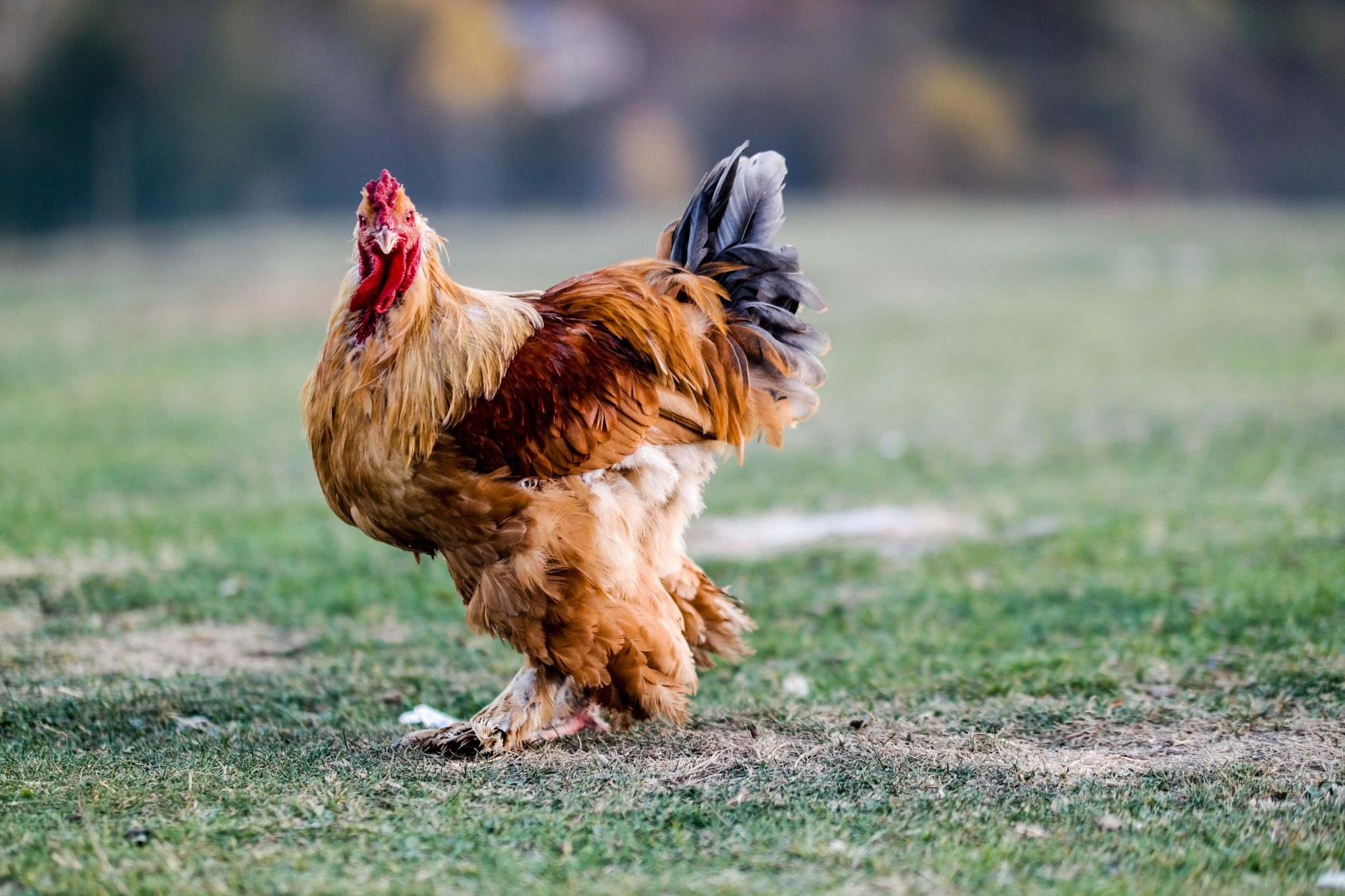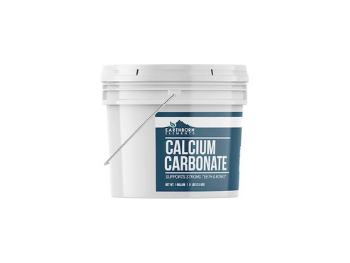Affiliate Disclosure: I only recommend products I used or would use myself, and all opinions expressed here are my own. This post may contain affiliate links, and if you purchase something from one of my links, I may earn a small commission (at no additional cost to you).

First off, I am not advocating oyster shells as a calcium supplement for chickens, but there are undoubtedly those of you thinking this is the only option or wondering what can I give my chickens as a calcium supplement as an alternative? More on this in a bit (or just jump down you lazy schmuck).
Do Grit and Oyster Shell Do the Same Thing for Chickens?
Many new chicken owners may think these are the same thing/serve the same purpose, but they are not and do not. It’s really important that we address the difference between grit and oyster shell (or other calcium supplement like limestone). You cannot just provide one or the other. Chickens NEED both calcium and grit.
Grit is essentially a tool. It’s for grinding food. It does relate directly to dietary needs (i.e. minerals, vitamins, nutrients, etc). It comes in the form of small stones chickens can get from their environment or from supplementation from their human caretakers.
Calcium on the other hand is critical to your chickens’ dietary needs and egg production. Even if you are not consuming their eggs, they biologically are wired to lay eggs. Their bodies cannot just stop laying eggs because you don’t want to eat them. So we need to do all that we can to support their natural process. Without adequate calcium you hens will lay soft-shelled or shell-less eggs which can cause other health problems. They can even stop laying altogether.
What you then choose to do with the eggs once they are brought to light is your business. Eat them, throw them at your friends or people you don’t like, sell them, give them away, or feed them back to your chickens (many vegans with chickens advocate this). The ethics of what to do with your chickens’ eggs as a vegan is another topic—one that I definitely want to explore in a future post with anyone who cares.
Vegan Calcium Sources for Chickens (+Grit)
So let’s get down to it. There are a few ways to help you hens get the calcium they need without harming other animals. (I’ll talk more about grit here too.)
Feed Your Chickens a High-Quality Feed
To support your chickens’ proper calcium intake (as well as protein and other vitamins and minerals), the easiest option is to buy a high-quality, preferably organic, layer feed. Layer feeds are supplement support egg-laying chickens. Make sure to avoid “broiler feed.” These feeds are jacked up with high levels of protein as their sole purpose is to fatten up the chicken quickly so it can be ready for slaughter in a short period of time. There’s no health benefit to the chicken. That’s not what we’re about here.
Free-Range Your Chickens
Have you ever watched a chicken forage? They are always pecking at the ground and sometimes you might wonder what they heck they are eating when it clearly looks like they are just stabbing the soil in joy. They are not only eating grass, plants, and insects, but also consuming grit from the soil. Grit is something that chickens use to grind up food in their gizzards. If your birds are free range they should be getting enough grit from their environment in the form of small stones and pebbles. It’s worth noting that if you free-range less or not at all in the months where daylight is shorter, you may need to supplement grit to some degree. This is what I do (for reference I live in Northwestern NJ).
Uhh…Plants Contain Calcium?
Yes, yes they do. Don’t let the media lie to you. Your chickens AND YOU can get all your calcium needs from plants. I won’t digress too much, but here’s the deal.
Free-ranging or providing your chickens regular access really is an all-around great option. Chickens like any other animal need stimulation. They want to be outside in the sunlight scratching, causing mayhem, and engaging in other chicken-related activities.
Oyster Shell
Again, I am not advocating this, but in the interest of full transparency, I would like to address this one because as a new chicken owner back when I started out years ago (and was still omni), this was the most convenient and obvious option. It’s readily available in basically all feed stores and widely known as the go-to option for calcium supplementation.
However, that does not mean it’s the only option as you can already see by the rest of this list. There are actually much easier options like buying a feed that contains the right amount of calcium already in it. Make your life easier and be cool to animals in the process.
Ground Limestone
As mentioned, in the past I have supplemented with oyster shell and then after going vegan relied on free-range/outdoor time for my chickens’ calcium needs, but I wanted to find a better solution for the fall and winter months as I cannot always let them out as long as I would like. A quick Google search led me to limestone as a good source of calcium for chickens. The thing about this is that you cannot just buy any old limestone. You need to make sure whatever you buy is food grade and safe for them to consume.
I have to be honest, it took me a bit of searching even to learn this was an option for chickens and then to find one that would be safe to feed them, but I finally did. The one I picked up is called Calcium Carbonate Powder by Earthborn Elements.
Calcium Carbonate Powder (1 Gallon)
Made from fine ground limestone, food grade. Good vegan calcium supplement for chickens.
Unfortunately, there are no dosing instructions on the container, so you need to do some research to figure that out. Adding too much calcium—in any form—to your chickens’ feed can cause health problems. Here are some ground limestone dosing instructions I found through my research. I cannot speak to the validity of these numbers, but it is the only guideline I could find. I opt to provide it to our hens free choice in a separate bucket so they can regulate themselves and that has worked well.
How to Provide Grit and Calcium to Your Chickens
Chickens need access to grit and calcium at all times. As mentioned, providing this access can be as simple as free-ranging your birds daily, providing a quality feed (though these don’t contain grit so you’ll still need to provide that if they don’t have adequate outside time), OR providing each of these supplements in free choice containers (that is they can feed on them as needed).
There is no need to mix the limestone or grit into their food. If you want to do that you’ll need to make sure you provide an adequate ratio of each. Honestly though, it’s just easier to keep it all separate and let them do their thing.


